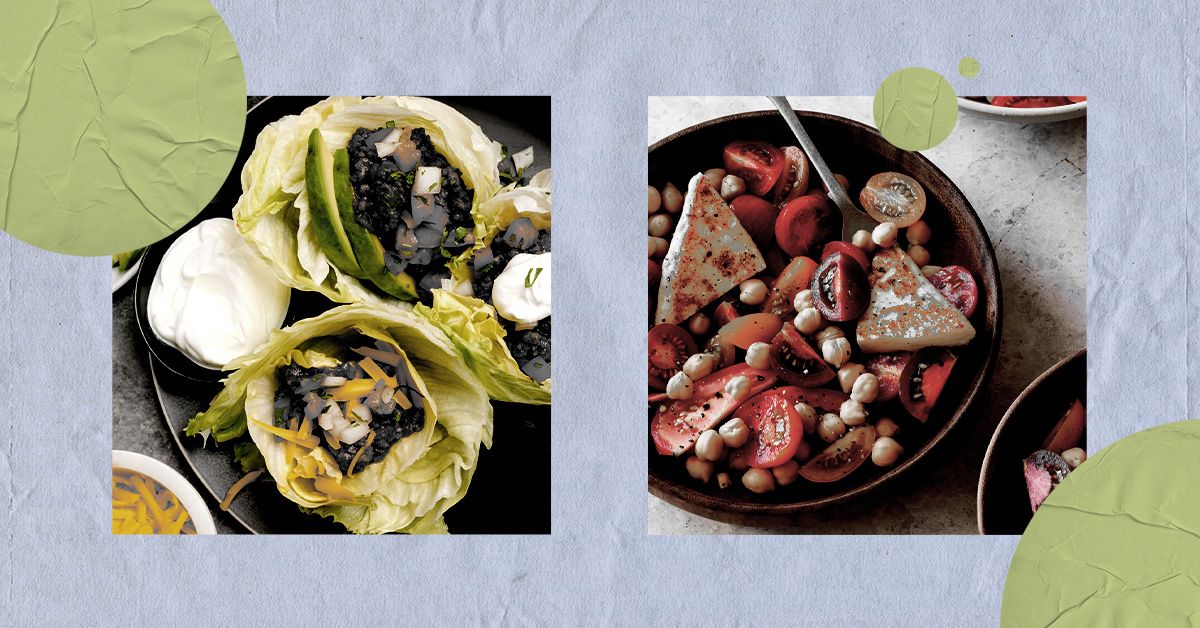I’ve always had a hard time finding balance, which is why an all-or-nothing diet approach used to work for me. As someone who thrives with boundaries in place, keto felt like a great match at the time. It was about 11 years ago when I first became curious about healthy eating. My desire to eat healthy led to going gluten-free and low-carb. I was feeling fatigued from a high intake of refined carbs, and that eventually opened the door to keto.
As a forever student, I first got to work researching the science behind keto before going all-in. I learned that the ketogenic diet is sometimes recommended for people with type 2 diabetes, as some research has found it can help manage blood sugar. It has also been found to be helpful for those with epilepsy, where the body adopts fats and ketones as its primary fuel sources (instead of carbs) as a neuroprotective way to decrease seizure rates. While I had neither diabetes or epilepsy, some science said I could lose weight by following keto, and I was intrigued.
My Keto Journey
Food has always played a huge role in my life. My father’s side of the family was in the baking business for two generations, and our family continues to cook their holiday recipes, four generations strong. So when I went keto in the fall of 2017, it meant pulling full-time duty in my solo kitchen. I was already well-versed in gluten-free recipe hacks, but keto took the cooking rules to a new level. I learned about integrating quality fats and how to use sugar substitutes, and before long, I was fully immersed.
For the first couple of years, I was reaping the advertised benefits of keto. I lost weight and inches off my waist, enjoyed consistent mental clarity and reduced brain fog, and felt motivated and energized in the gym, while snowboarding and whenever I would adventure outdoors. I cooked most of my meals at home but still dined out on occasion, though it felt difficult having no control over what actually happened in the restaurant kitchen. I was still occasionally drinking alcohol and counting net carbs. It felt like a slippery slope trying to track whether or not I was dropping in and out of ketosis, so I fasted more often than I probably should have.
For me, keto wasn’t just a diet or a lifestyle. It became a full-time job. Literally. I took a full-time job as the content marketing manager with a keto coffee and supplements company in 2020, where I was one of the only staff members out of more than 100 that followed the keto diet. Before long, I was developing keto recipes and project-managing keto cookbooks. And even though I was enjoying employee perks like stocking up on coffee, MCT oil, ghee, collagen protein and more, it was all keto all day—and it started to take a toll.
After I moved on from that job, I started to notice that keto was no longer working for me in the way it once had. I constantly felt down in the dumps. I was gaining weight again. And I was dealing with chronic stress and insomnia. In a word, I felt crappy. I decided to talk to my primary care physician. We did blood work that revealed my “bad” (LDL) cholesterol had shot through the roof and my thyroid hormones were down. I was then given a long list of supplements to integrate into my routine and prescribed synthetic hormones—for the first time in my life.
A few months and another round of blood work later, I was still not feeling better or seeing much progress. My thyroid meds helped lower my cholesterol but weren’t having the necessary impact on my endocrine system. Some of the supplements took care of my deficiencies, but I was still battling chronic stress and sleeplessness. I knew it was time to start weaning off keto, but the thought was exhausting and I was scared of making things even harder on my mind and body.
Moving On from Keto
In the fall of 2022, I scheduled an appointment with an endocrinologist who told me to first ditch the synthetic hormones and, next, to stop taking the supplements that weren’t targeting identified deficiencies. She said since I didn’t have a chronic health condition that following keto could potentially support—and because I was gaining weight instead of losing or maintaining—she thought it would be wise to stop following the diet.
With the help of my endocrinologist, I hatched a plan to slowly start integrating healthy complex carbs (and fruit!) back into my life. I left or muted the keto Facebook groups I’d spent years fostering. I spent the last few months of that year processing what had become a dietary trauma of my own doing.
As I launched into the new year of 2023, I was ready to embrace the new me. I felt empowered again for the first time in a while. I followed a vegan diet for two weeks and began to fall back in love with bananas, apples, sweet potatoes, beans, lentils, quinoa, oats and so many foods I had avoided—along with so much of my food-related joy. I’m now following a more well-rounded diet that focuses on high amounts of lean protein, healthy fats in moderation, good gut health and tons of plants on my plate. I bake on occasion with dates and date sugar; I ditched sugar substitutes altogether once I read about how erythritol might impact your risk of cardiovascular events. I now take my coffee black—no longer brimming with fats—and enjoy bacon rarely as something special.
The Bottom Line
My only regret is that I waited until my own health was suffering before I realized that keto was hurting me more than it was helping me. When I look back on my five years of keto, I’m now able to accept the harsh truth: it triggered some disordered eating behaviors. To those considering the diet, I caution you to talk to a doctor or registered dietitian first to weigh the pros and cons and understand if it’s the right path for you.
It’s now been two years since ending my keto chapter. I’ve been able to forgive myself for what I endured. I’ve practiced plenty of mindfulness and gratitude and continue to work through food-related guilt. I exercise to support my overall health five days per week—a feat I was never able to achieve on keto. Most importantly, I feel so free since I let go of a highly restrictive diet and lifestyle that was no longer serving me.




